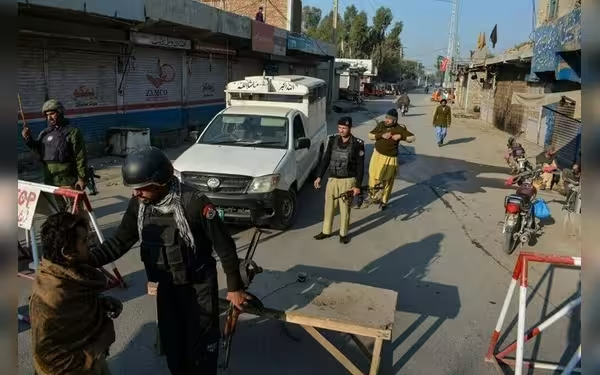Saturday, November 16, 2024 10:00 PM
Tirah Valley Displacement Crisis
- Residents displaced since 2011 face ongoing uncertainty.
- Protests disrupt local businesses and travel routes.
- Government must prioritize repatriation and support.
 Image Credits: brecorder
Image Credits: brecorderThe Tirah Valley faces a dire displacement crisis, with residents awaiting repatriation amid ongoing military operations and protests.
The situation in the Tirah Valley has become increasingly dire for its residents, who have been displaced since the military operations began in 2011. This region, once a vibrant community, has seen its people forced to leave their homes due to ongoing security concerns. The government and security establishment must now come together to address the plight of these individuals, who have been living away from their lands for over a decade.
Initially, residents were assured that they would be allowed to return home once their areas were cleared of militants. However, as time passed, the narrative shifted. Despite claims of successful military operations in the former Federally Administered Tribal Areas (FATA), now part of Khyber Pakhtunkhwa (KP), many families remain unable to return. The excuse given is that their homes are too close to the border, which raises questions about the long-term displacement of these communities.
Recently, those few who had managed to return were once again asked to leave, hinting at the possibility of another military operation. This situation has understandably led to frustration and protests, including blockades of the Torkham highway. Such actions have not only disrupted the lives of the displaced but have also affected local businesses and travelers, costing traders millions of rupees daily.
Living in limbo is not easy. Many families have not seen their homes for 13 to 14 years, and the uncertainty of when they will be allowed to return is taking a toll on their mental and physical well-being. Some families are forced to live with relatives, while others find themselves camping in the open, struggling to make ends meet. The blockage of the Torkham highway has only exacerbated their misery, with stationary trucks and frustrated drivers adding to the chaos.
It is crucial for the state to break its silence and take action. The ongoing neglect of the situation is unacceptable, especially considering that this region is among the poorest in Pakistan. Truck drivers, who often serve as the sole breadwinners for their families, are particularly affected. If left in such dire circumstances, many may resort to desperate measures to survive.
While it is acknowledged that the state is grappling with a resurgence of insurgency, its primary responsibility remains with the people. Engaging with the Tirah tribesmen and addressing their concerns should be a priority. The road ahead is fraught with challenges, as clashes between security forces and the Tehreek-e-Taliban Pakistan (TTP) have already resulted in civilian casualties, including children.
Given the proximity to the border, it is likely that the Tirah Valley will remain inaccessible for the foreseeable future, especially if another military operation is launched. These are fragile times for the ex-FATA region, where pressing issues such as economic collapse, poverty, and terrorism converge. The government must invest more time and resources into resolving these problems, as winning the trust of the civilian population is essential for overcoming insurgencies.
The plight of the Tirah Valley residents is a pressing issue that requires immediate attention. The government must act decisively to facilitate the repatriation of displaced families and address their grievances. Only through genuine engagement and support can the state hope to heal the wounds of this community and pave the way for a more stable and prosperous future.













